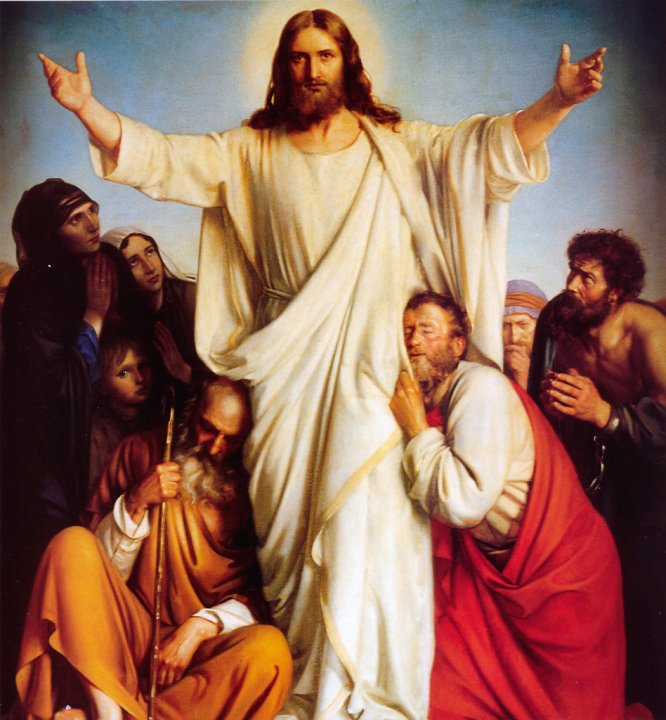25th Sunday in Ordinary Time-C
I Reading Amos
8:4-7: The prophet of God challenges the people
over their corrupt dealings and oppression of those who are poor.
II Reading: 1
Timothy 2:1-8: Paul
urges us to a love of unity, teaching us to pray for all God’s people.
Gospel: Luke
16:1-13: You cannot be the slave both of God and
of money.
The Parable of
the Unjust Manager: Man and Money, Lk 16:1-13
This passage is one of the
most difficult passages in all of Scripture to understand. Verse eight is the
primary reason. There is one particular danger against which the church
repeatedly warns us in our Sunday readings: the danger of riches because of
wealth wrongly acquired or badly used. No other Gospels stress the danger of
riches so much as that of Luke. The Christians were tempted to make acquiring money the main purpose of their lives. So Luke dedicates the whole
chapter of 16, from which today’s Gospel has been taken, to guide the use of
money. For that purpose Luke brings in two parables of Jesus:
·
The parable of the
unfaithful manager narrated in today’s Gospel (Lk 16:1-8).
·
The parable of the rich
man and Lazarus about which we shall hear next Sunday (Lk 16:19-31).
Money and possessions are particularly
bad when obtained through oppression, corruption, exploitation, and cheating of the
poor and downtrodden ones. The prophet Amos saw the country’s wealth was built
on social injustice and that the people had no real regard for their
religion. The prophet Amos speaks of “the poor being sold for a pair of
sandals” (Amos 8:6). The poor had to take loans; the Law forbad taking interest
from the needy, (Ex 22:24-25; Lev 25:35-37; Deut 23:20-21) but exorbitant
interests were charged, and when a person was unable to repay the loan, his
fields and house were confiscated. When nothing was left, the wife and children
of the debtor would be taken as slaves.
Today our concern for social
justice and for the poor around us will tell us whether our attitude towards
money and possessions accords or not with the Gospel. We must always be alert and
see that whatever wealth comes to us is legitimately acquired and that God
approves of the use we make of it. The Gospel makes it clear that attachment to
money and possessions cannot be combined with genuine Christian life.
The advice of St Paul to
Timothy in today’s second reading is to pray for people in authority to
discharge their duties in all honesty, for the poor and oppressed who today are
victims of injustice, for the rich to change their hearts, refrain from
exploiting the poor.
Jesus also teaches about the
rich young man- looking for the eternal life- but he goes back sadly when Jesus
said, go and sell all your wealth and give to the poor; camel can enter into
the eye of a needle but very hard for a rich man to enter into heaven etc.
The manager was a trusted
slave who was put in charge of the landowner’s estate. He was highly regarded
and esteemed, considered to be completely trustworthy. The term “manager” is
applied to ministers (1Cor 4:1) and to believers in general (1Pt 4:10; Lk
16:1).
1. The Unjust manager (v.1-7)
a. He was charged with
embezzlement, with wasting the Lord’s possessions
b. He was required to prepare
e a final accounting
c. He knew he was guilty and
was unwilling to change and cry for mercy
d. He decided what to do: He
would forget the Lord and court the favor and rewards of people
2. The worldly are wiser
in their material pursuits than God’s people are in their spiritual pursuits
(v.8)
3. The Christian is to use
material wealth for good (v.9)
a. Wealth will fail-at death
b. Giving will be
reciprocated
4. The Christian is to be
faithful in handling possessions: how he handles his possessions will determine
what he will be trusted with eternally (v.10-12)
a. Money is the least trust
b. Unfaithfulness
disqualifies one from true, heavenly riches
c. Unfaithfulness
disqualifies one from all he would receive
5. The Christian cannot serve
two masters: Must choose God or riches (v.13)
Thought: How many religionists mislead
others through false teaching, cheating and exploiting the poor, doing
injustice and being involved in corruption, causing so many not to use their lives
and gifts for God.
Let us be faithful towards the “little
things” God has entrusted us with, so that we may one day possess the "great
things” on the earth and in heaven, eternal life.
